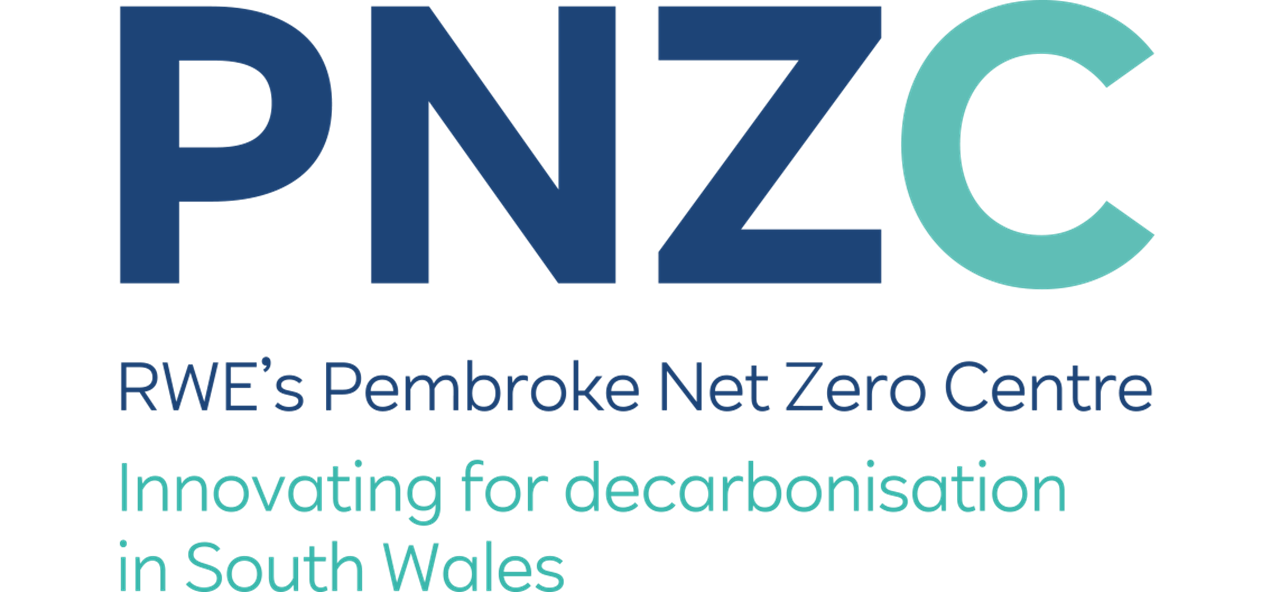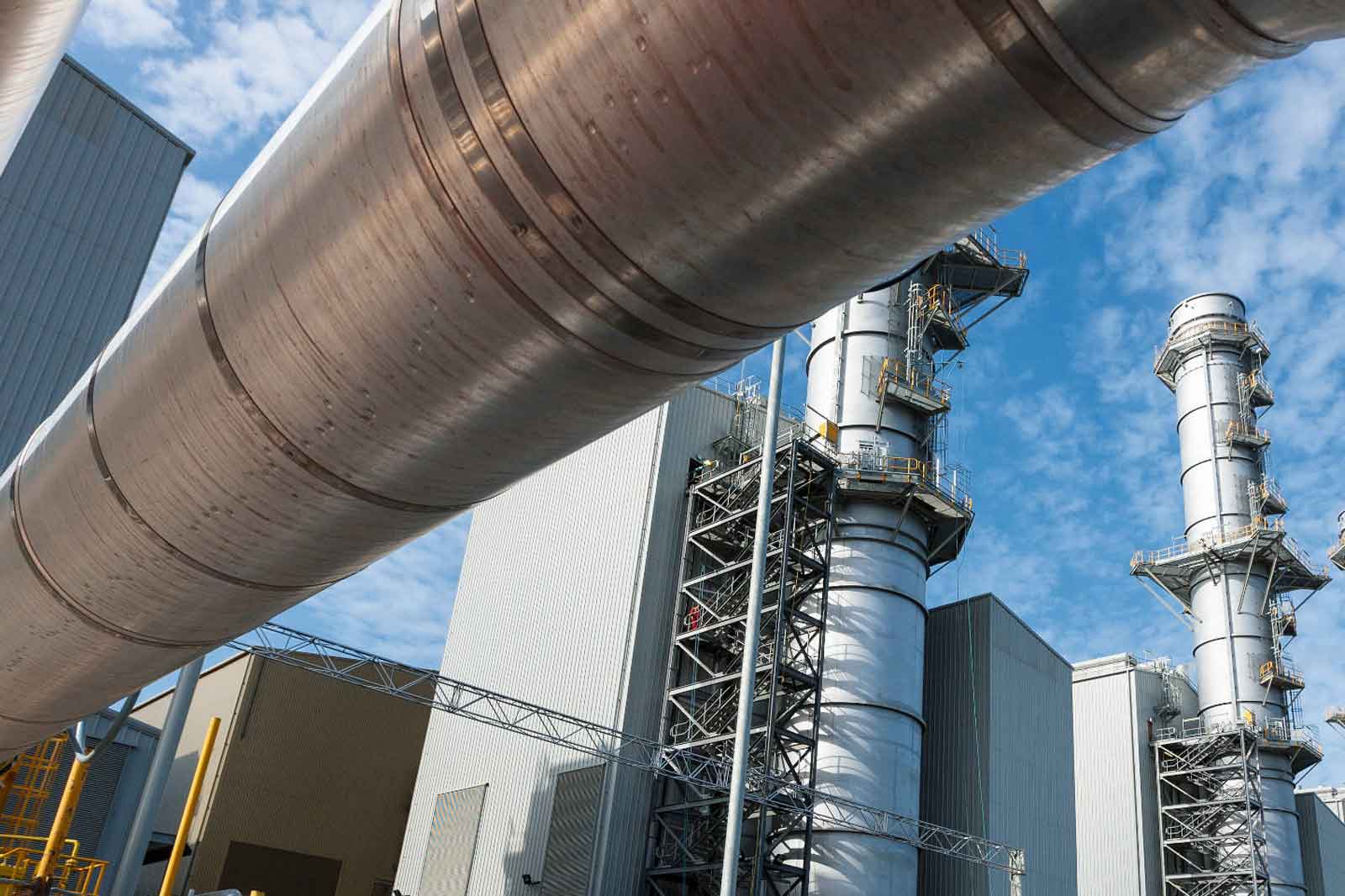



Pembroke Net Zero Centre has a critical role to play in Wales and the UK’s pathway to Net Zero.
By decarbonising its current operations at the power station, while investing in new innovative technologies, RWE can establish Pembroke at the forefront of South Wales’ low-carbon future.
Together, these new technologies will be part of, and contribute to, RWE’s vision for Pembroke Net Zero Centre - a hub of low-carbon innovation and clean energy generation.

RWE has a clear ambition - to be carbon neutral by 2040. Pembroke Net Zero Centre forms a critical part of this ambition, supporting the UK to achieve its Net Zero commitments, while helping to decarbonise nationally important industry and the energy sector in Wales for generations to come.
Pembroke has a long history of power generation, with Pembroke Power Station operational since 1960. By decarbonising the power station, and implementing sustainable energy technologies, RWE can help to secure the future of Pembroke’s energy heritage long into the future.
RWE’s vision will build on Milford Haven’s historic energy heritage, safeguarding local jobs, while establishing Pembroke at the forefront of sustainable energy innovation.

Currently, RWE has ambitions to develop a number of new technologies at its Pembroke site. Each of these projects will be part of, and contribute to, the overall vision for Pembroke Net Zero Centre:
Energy production is ingrained in Pembrokeshire, with vast energy skills and experience already located in the area. RWE’s ambitions will build on this, helping to secure the future of existing industry, businesses and jobs, while providing a significant boost to the local economy.
Early analysis by Cardiff Business School indicates that by the end of this decade projects contributing to Pembroke Net Zero Centre are expected to support up to 1,500 - 2,000 jobs each year in construction. While construction will represent a boost to the regional economy Gross Value Added (GVA) by up to £70m - £100m each year, through to 2038.
This investment in South Wales and its communities will continue during operation, with projects that are part of the vision for Pembroke Net Zero Centre providing a local economic boost of £28m each year and supporting approximately 95 new long-term jobs at the site, from 2040.
A further 270 Welsh jobs are expected to be created through the positive impacts of wider operational spending, while the implementation of new carbon capture and storage technology will help to safeguard the 100 existing jobs at Pembroke Power Station.
Read more about the economic benefits in this report.
RWE is the lead partner in the South Wales Industrial Cluster (SWIC), that works collaboratively with partners to drive decarbonisation across the region’s industrial processes.
RWE’s ambitions for Pembroke Net Zero Centre, including hydrogen generation will help to provide a clean energy alternative and secure a more sustainable future for South Wales’s long-standing industrial heritage.
RWE is a partner in The Milford Haven Waterway Energy Cluster - which aims to deliver 20% of UK Government low carbon hydrogen production target by 2030 and at least 10% of the Celtic Sea floating offshore wind target by 2030. Milford Haven Waterway is a critical energy asset primed to provide the foundation of UK energy independence.
As RWE develops its vision for Pembroke Net Zero Centre, the community will be involved and informed on all projects from planning to operation. Local input is critical to good design, and RWE is committed to ensuring that the viewpoints of the community are considered and incorporated throughout the design process.
By consulting the local community on key projects, RWE can ensure its vision for Pembroke Net Zero Centre respects its environment and delivers tangible, lasting benefits to local people in Pembrokeshire.
RWE, as part of the vision for Pembroke Net Zero Centre, will undertake the required pre-application planning consultations with the local community. Consultations on a green hydrogen facility and a battery storage project are due to be consulted on in 2024.
RWE is mindful of the cumulative impact of projects at Pembroke Net Zero Centre, and in the wider area, and is committed to considering any environmental impacts and enhancements within this context.
* Multi-Utility Service Transit (MUST), was a collaboration with Dragon LNG and RWE potentially connecting industry across the Milford Haven Waterway towards decarbonisation. In May 2024 the partners received the results of feasibility studies aimed to assess the technical, economic, and regulatory aspects of the proposed solution. The report confirmed the technical feasibility of installing a trench across the Haven, however it highlighted significant challenges that could extend the implementation schedule, in addition, the report concluded there are no technically feasible options as a bundled services/trenched concept that was economically viable. As a result, RWE and Dragon have decided to discontinue further assessment of the MUST project as a fully bundled, multi-service transit crossing via trench.

